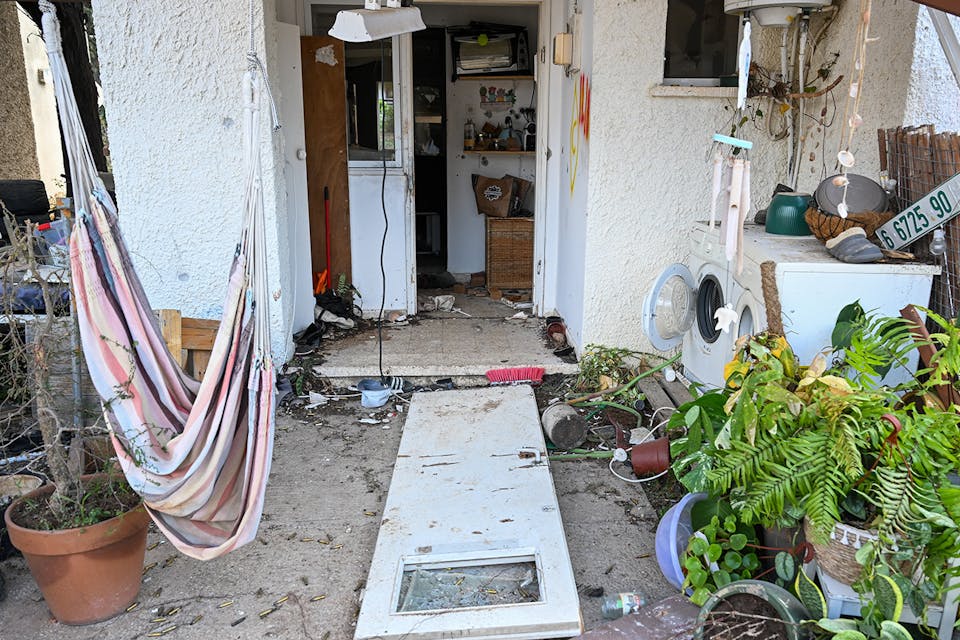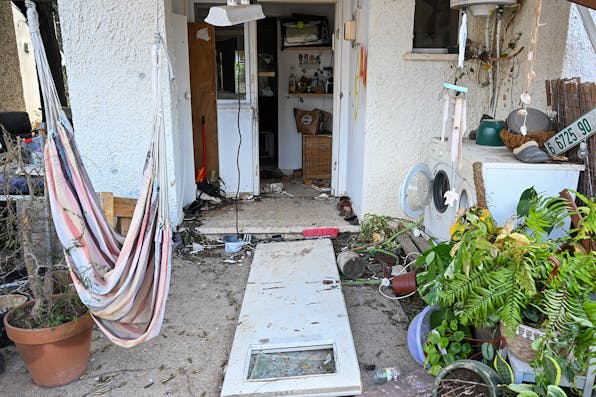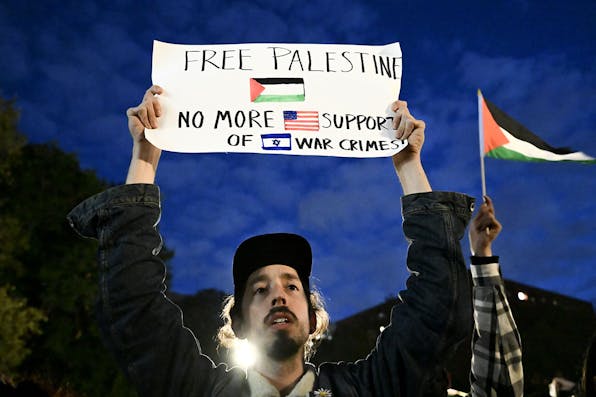
October 17, 2023
The Death of Evidence-Based Two-Statism
After October 7, the possibility of a diplomatic resolution of the Israeli-Palestinian conflict has receded from view.
One of the most dramatic effects of October 7 is that it turned Palestinian statehood from a remote possibility into an outright impossibility. On that day, supporters of Palestinian statehood, among whom I used to count myself until recently, lost their strongest argument for their view.
Let me start with a couple of biographical remarks. For a long time, I was a supporter of the two-state solution to the Israeli-Palestinian conflict. Over the years, I have become convinced that a full-blown solution to the conflict isn’t possible, because eliminationist irredentism is such an integral aspect of Palestinian national identity that even full-blown Palestinian statehood will never constitute a solution, and thus will never put an end on the conflict. However, I believed that separation from the Palestinians was still a necessity, and that even if the conflict could not be solved, it could be “frozen”—turned into something resembling the conflict between India and Pakistan, which has never been resolved but in which the level of violence can be kept low. In short, I used to believe that Israel must finish the late prime minister Ariel Sharon’s plan of unilateral withdrawal and clear out of part of the West Bank, while keeping most settlers within Israel’s final, unilaterally declared borders. Lately, however, I have become doubtful of this approach, and after October 7 I have become unambiguously opposed to it.
There are two ways of being a two-statist about the Israeli-Palestinian conflict: faith-based and evidence-based. Faith-based two-statists aren’t prepared to give up on the two-state paradigm under any circumstances. Sometimes they argue that justice demands that the Palestinians be allowed to exercise their self-determination in an independent state, no matter what the cost is for Israel. Others argue that without a two-state solution, the final outcome would “inevitably” be one state. (It’s rarely explained exactly what is inevitable about it. Advocates of the argument usually imagine a future sanctions regime that would browbeat Israel into giving citizenship to the Palestinians, but since enfranchising millions of hostile Palestinians would be a far greater existential threat to Israel than the sanctions regime itself, this doesn’t sound realistic to me.)
Responses to October ’s Essay

October 2023
Hamas’s Messianic Violence
By Hussein Aboubakr Mansour
October 2023
The Whole Middle East Is Counting on Israel to Destroy Hamas
By Evelyn Gordon
October 2023
“OK, So I’ll Tell You What Happened This Saturday from My Perspective.”
By Namer
October 2023
Israel’s Outside-the-Box Options
By Aaron MacLean
October 2023
The Cost of Strong American Support at the Start of the War
By Jonathan Schachter
October 2023
The Death of Evidence-Based Two-Statism
By Rafi DeMogge
October 2023
Israel’s Existential Struggle Is Also the West’s
By Arthur Herman
October 2023
“Now We Act as If Everyone We Encounter Might Be Grieving”
By Sarah Rindner
October 2023
America Can No Longer Wait to Put Its Own House in Order
By Stephen Peter Rosen
October 2023
The Social-Media War
By Arieh Kovler
October 2023
The Extremist’s Gambit Helps Explain Why Hamas Attacked Now
By Tanner Greer
October 2023
Left, Right, Haredi: Three Great Awakenings of the Gaza War
By Yehoshua Pfeffer
October 2023
“Today the Jews. Tomorrow You.”
By Andrew Doran